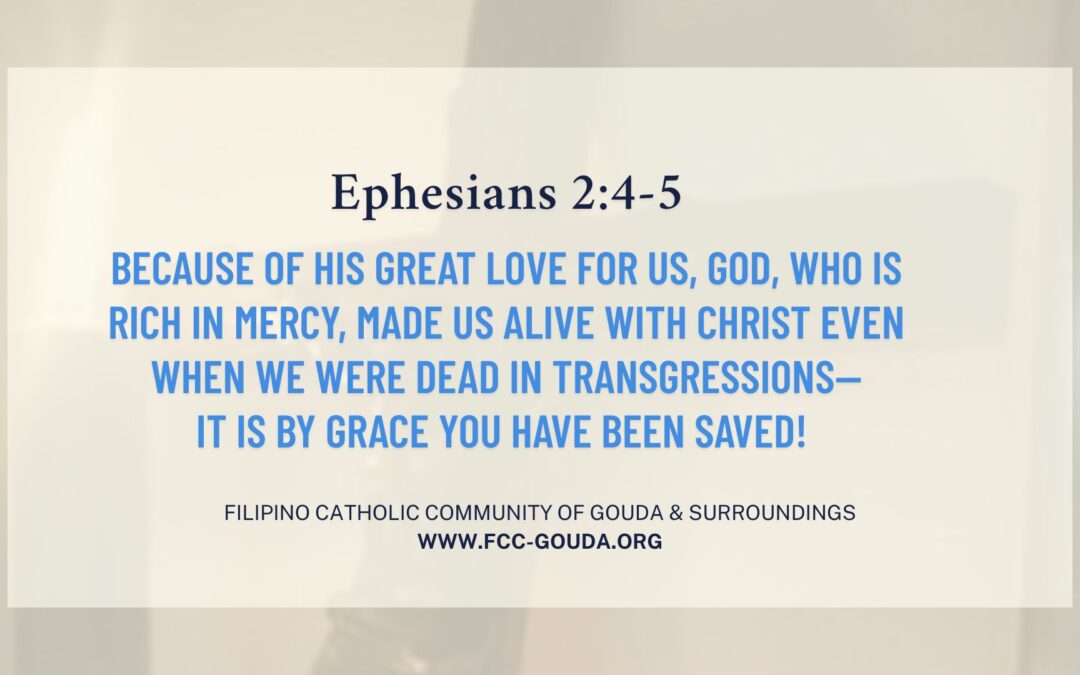By Marcel Uzoigwe, C.S.Sp. (Acts 5: 12-16; Revelation 1: 1-11; John 20: 19-31)
Dear friends in Christ,
On this second Sunday of Easter, we celebrate the Divine Mercy. The Church designated this second Sunday of Easter as the Feast of Divine Mercy following the various messages of Jesus to Sr. Maria Faustina Kowalska detailing his desire to bring the message of his mercy to mankind. It is a great opportunity to reflect on God’s loving mercy for us, and how we should respond to it. The readings give us insight on how God handles our failures to understand, and lack of faith in what he does in our lives.
The resurrection of Jesus is essentially linked to his great mercy and desire to give us new life, which is the fruit of his Passion. That is why, in his appearances after his resurrection, Jesus showed his hands pierced by the nails, and his side torn open by the soldier’s lance from which flowed out blood and water. That was enough to convince those of his disciples, especially Thomas, who were yet to recover from the shock of his Passion and death, and therefore, doubted the joyful news of his resurrection. While it might be easier for us to believe in the resurrection on account of the Gospels, it remains an obstacle to those who apply human reasoning to divine mysteries, given that the resurrection of Jesus does not lend itself to material order or human consideration. It is clear that some of the people who left the Church or have difficulties believing in God do so on account of the difficulty in understanding the existence of God in the context of the human experience, such as human suffering, which their concept of God could not explain. The experience of Thomas is a reminder that God’s ways are not ours.
In today’s Gospel, we see the first disciples discouraged and terrified after Jesus’ death. They are locked in a room. Suddenly, Jesus stands among them and says to them, “Peace be with you,” and breathes the Holy Spirit on them. They are sent out in the power of the Spirit to offer others the gift of forgiveness. “If you forgive the sins of any, they are forgiven…” Notice that Jesus did not reprimand them for deserting him during his passion, nor reminded them of their weaknesses. Rather, he focused on empowering them to bring His forgiveness to mankind because forgiveness in itself is empowering, and creates new opportunities. That is a great lesson to our human societies that often label people, getting them stuck in the mistakes that once made. We often hear the saying, “Once a thief always a thief”. But God sees potentiality for goodness even in the thief and gives him the opportunity, through forgiveness, to bring out that goodness to the world.
What Jesus gave to his disciples is both a gift of forgiveness and a mission. That gift and mission are also given to all of us who have been baptized into the risen Jesus. Reconciled to the Lord, we are all sent out as servants of reconciliation. The Sacrament of Reconciliation is of course a privileged moment of reconciliation, in which we once again receive the Lord’s forgiveness and pass that forgiveness on to those who have hurt us. But there are other moments of reconciliation: the daily forgiveness of our brothers and sisters; the courage to say “I’m sorry” and the gracious acceptance of another’s offer of apology. In these moments, Jesus is among us to help us get out of situations that can be debilitating for all involved.
The Gospel tells us that Thomas was not with the other disciples when the Risen Lord appeared to them. He might have been devastated by the events of Jesus’ Passion and death and had withdrawn to deal with the pain. Thomas’ absence from the community of the disciples when Jesus came depicts the withdrawal approach taken by some people when they felt hurt. The second appearance of Jesus to the disciple during which Thomas was present teaches us the importance of community even amid crisis. When we cut ourselves off from the community of believers, we lose a great deal. Despite all its faults and shortcomings, the Church is the place where we encounter the Risen Lord. It also teaches us compassion towards one another. Jesus had to come again for the sake of Thomas. Let’s not forget that when Jesus wanted to go raise Lazarus from the dead, and his disciples were afraid that the Jews would kill Jesus, it was Thomas who encouraged his colleagues, saying, “Let us also go, that we may die with Him” (John 11: 16). One good turn, they say, deserves another. In whatever we do, let a day of sorrow not becloud the years of sunshine we have shared with whoever it might be.
Further on Thomas, the other disciples reached out to him. They shared with him their discovery – their experience of the Resurrected Jesus. “We have seen the Lord”, they said, seeking to convince him. The action of the disciples reminds us of our call to continue to look out in faith for all those who, for whatever reason, have drifted away from the community of believers and no longer meet with us. We may indeed receive the same sort of negative reaction that the disciples received from Thomas. But even if our efforts fail, we know that it remains the will of the Father that no one gets lost. In the parable of the shepherd that left the ninety-nine sheep in search of the one lost sheep (Matthew 18:12-14) Jesus showed us the love and mercy of God for all his creatures. When Jesus brought Thomas to faith, we have one of the greatest expressions of faith in all the Gospels come out of the mouth of the skeptic: “My Lord and my God.”
Thomas Merton wrote in his book Asian Journal, “Faith is not the suppression of doubt. It is the overcoming of doubt, and you overcome doubt by going through it. The believer who has never experienced doubt is not a believer.” Unlike some Christians who profess Jesus in the church but deny him in public places, Thomas was very honest. He did not pretend to believe when he did not. He needed certainty to make his fundamental option for Jesus. Once he got it, he gave it everything. The Gospel suggests that such honesty is never far removed from authentic faith.
Let us recognize today that just as the risen Lord addressed Thomas’ discontent, he is always ready to address our discontent and that of every human being. We are simply people who have been wounded by injustice and marked by various life experiences, both good and bad. But as baptized followers of the crucified and risen Lord, let’s be marked above all by the forgiving peace of Christ. He is our living Lord and our God, who was crucified, died and rose for us so that we can truly learn to live and forgive in his name. That is why he also says to us today: “Peace be with you!”
***
Livestream recording of the mass can also be viewed HERE.

